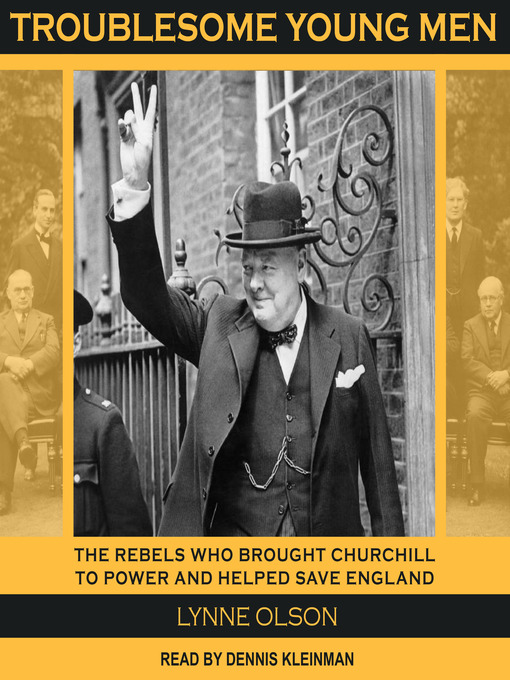Troublesome Young Men
The Rebels Who Brought Churchill to Power and Helped Save England
Some historians dismiss the "phony war" that preceded this turning point as a time of waiting and inaction, but Olson makes no such mistake, and describes in dramatic detail the public unrest that spread through Britain then, as people realized how poorly prepared the nation was to confront Hitler, how their basic civil liberties were being jeopardized, and also that there were intrepid politicians willing to risk political suicide to spearhead the opposition to Chamberlain—Harold Macmillan, Robert Boothby, Leo Amery, Ronald Cartland, and Lord Robert Cranborne among them. The political and personal dramas that played out in Parliament and in the nation as Britain faced the threat of fascism virtually on its own are extraordinary—and, in Olson's hands, downright inspiring.
-
Creators
-
Publisher
-
Release date
October 16, 2018 -
Formats
-
OverDrive Listen audiobook
- ISBN: 9781977303851
- File size: 423840 KB
- Duration: 14:42:59
-
-
Languages
- English
-
Reviews
-
Publisher's Weekly
Starred review from January 1, 2007
In 1930s England, faced with the gathering menace of fascism, 30 or so junior members of Parliament understood that Hitler would not be dissuaded by Prime Minister Chamberlain's policy of appeasement. Their rebellion against their leader and the "elderly mediocrities" of their own Conservative Party is the subject of Olson's absorbing book. The forces opposed to Chamberlain were initially inhibited by party loyalty and the ferocious reprisals threatened against anyone who challenged the prime minister. Olson traces how Hitler's continuing depredations (Austria, Czechoslovakia, Poland) served to recruit more insurgents in the House of Commons and galvanize those shamed by England's inaction. Olson's story picks up energy as she reviews the events of 1940, when at long last Chamberlain was replaced by Churchill. Olson is interested in the moral imperatives driving her protagonists. The dominant figure in the narrative, of course, is Churchill, who despised Chamberlain's defeatism but served loyally in his cabinet until Chamberlain's forced resignation. Infused with the sense of urgency felt by the young Tories, Olson's vivid narrative of a critical generational clash leaves the reader wondering what might have happened had they prevailed earlier on.
-
Loading
Why is availability limited?
×Availability can change throughout the month based on the library's budget. You can still place a hold on the title, and your hold will be automatically filled as soon as the title is available again.
The Kindle Book format for this title is not supported on:
×Read-along ebook
×The OverDrive Read format of this ebook has professional narration that plays while you read in your browser. Learn more here.

